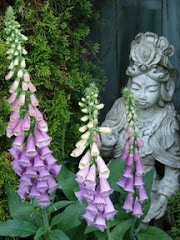
What makes me a great choice as a coach?
-- I am empathic by nature, but have married empathy with various learned and practiced skills that make what I know from an empathic level more apparent and useful to progress forward in others.
-- My ability, due to experience and hands on learning in the helping professions, to make quick assessments related to the nature of the processes and essential coping strategies in use in people, couples and families/groups… and then to employ them in the manner in which I work with people to help them see, understand and employ them toward positive change.
-- Good sense of humor used liberally and in appropriate doses
-- A good solid understanding of the difference between my needs and my clients’
-- I refuse to be maneuvered into the role of the least favorite parent, or the voice of that parent, in my dealings with my clients. My work is often partly concerned with ways to help transform that persistent inner voice into one less judgemental and negative... and certainly less cruel. You cannot go into the future and real change without challenging and changing the nature of how you speak to yourself to motivate and reinforce that change.
-- I insist that my work with people be centered on strengths, kindness and gentle persistence, and that it is their responsibility to take tough measures against any persistent lack of follow through, once it is identified, not mine.
What kinds of qualities that I have learned from earlier in my life help with my coaching?
My innate understanding of the multi-faceted nature of human personality and human relationships. This seems to me to be more of a gift than a learned skill… or at least less learned in a purely academic manner. It is also less an urge, or even the need, to be helpful to others than it is the gift of understanding and tolerance of, or appreciation for, difference and diversity in thought, action, applicable coping strategies, values and the individualized nature of how all of those things are expressed and applied by people in their day to day lives. That is not to say, as well, that the application of that gift is automatically useful to me in my coaching relationships... that is where the development and practice of my skills has come in.
What about the idea of the inherent quality of the "wounded healer"?
There is much written about the proverbial “wounded healer”, and to a certain extent it is probably accurate to say that many of the best “healers” have also been people who have had a good amount of experience in understanding, surviving and coping with their own foibles and losses and life issues.
That being said it is also my experience that the worst damage in the helping professions can be done by someone whose relationship to their own “wounds” is left largely unconscious and merely sublimated by their desire to help or heal others. The various professional helper categories have more than their share of people who’s only coping strategies have been to assume the mantle of helper without understanding how the long term resonances of their own "wounds" cannot be left unattended without damage being done in their professional relationships. Those deeper issues cannot be managed solely through the indirect way of helping others without some potentially dire consequences. This can be expressed in the way the in-actualized healer suffuses their work with the expectation that others must comply with their need to be helpful to them. The healer is recognized as one who is more focused on being indirectly healed through their ministrations to others than they are to the healing of those who have come into their charge.
Everyone has run into someone in the helping profession whose anger and/or hurt at being unable to be of assistance is palpable and seems to be deeply interpreted by the healer, as the most grievous assault on their sense of self. These folks may in fact have some gift toward understanding and compassion, but it is almost always compromised by the palpable and manipulative sense of extreme loss of self, meaning and purpose if what they offer is not accepted or acceptable.
What kinds of attributes from the present assist me with my coaching?
-- Self awareness of the nature, extent and limits of the gifts that brought me into coaching in the first place.
-- An understanding that coaching cannot be seen as a way to exert control over others or bring others over “to my side”.
-- Good supportive family and friends who offer outlets for human relationship outside of client relationships.
-- Willingness to always be in a state of learning. Each client brings an inner textbook of norms, talents, gifts and processes…. a willingness to eschew what has worked in the past for what can and will work in the past or future.
-- An ability to disconnect my own processes from expectations of others’ processes.
I understand that being coached is not necessarily easy work, and one does not go from point A to point Z without a few of the letters in between necessitating hard won changes of presumption and pre-conception. That can be a challenging and painful part of the process of growth. I believe it should be reflected as such so that prospective clients get a better idea of what to expect. Work is work.







1 comment:
Your honesty and integrity also make you a good coach.
Post a Comment